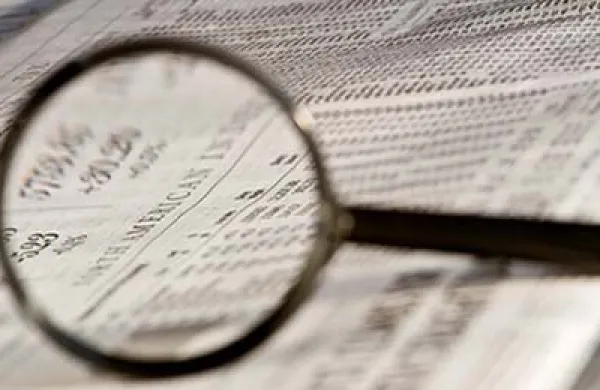Fireworks lit up the nighttime skies over Caracas and other Venezuelan cities on December 6 as opposition supporters celebrated the advent of a historic shift in power in this Latin American nation. “This is the most amazing day of my life,” Gabriel Dávila, a 25-year-old university student in the western city of Mérida, says in a telephone interview. “It feels like the Berlin Wall has come down. At last, I have some hope.”
Since he was a child, Dávila has known only Socialist rule. The late Hugo Chávez won the presidency in 1999 by promising to lead a Bolivarian revolution that would champion the interests of the poor and the working class. His movement, which he later crystallized in the United Socialist Party of Venezuela, or PSUV, dominated the country’s political landscape and enjoyed widespread popularity initially, but it grew increasingly repressive and presided over a dramatic economic decline in recent years, particularly under Chávez’s successor, Nicolás Maduro.
Now Venezuela is on the cusp of a new revolution, following a landslide election victory by a coalition of opposition parties known as the Democratic Unity Roundtable, or MUD by its Spanish acronym. In a stunning rebuke to Maduro, the coalition captured a total of 112 seats in the 167-seat National Assembly, more than double the PSUV’s 55.
Many Venezuelans hope political change will spark a revival of the economy, but that could take much longer than they think. The country’s financial and social problems run deep. The economy is expected to shrink by more than 10 percent this year — the deepest contraction of any country on the planet, according to the International Monetary Fund, which forecasts a further decline of 6 percent next year. To a large extent, the slump reflects the roughly 60 percent plunge in oil prices over the past 18 months. Venezuela sits on the world’s largest known oil reserves and gets 96 percent of its export earnings from the commodity. Yet increased government intervention in the economy, complex foreign exchange controls and an exodus of many of the country’s intelligentsia have worsened the decline.
The IMF estimates the country’s inflation rate at a staggering 159 percent this year and expects it to exceed 200 percent next year. Unemployment is approaching 20 percent. The official exchange rates of 6.3, 13.5 and 199.76 bolivars to the dollar are a far cry from the black market rate of 865 to the dollar. The budget deficit stands at some 20 percent of gross domestic product, and foreign reserves have dwindled to close to $15.2 billion, the lowest level in nearly 12 years.
Yet many in the business community are heartened by the elections results. “I am tremendously relieved because the people in charge of the country seem to accept the constitutional process,” says Victor Rodriguez, a Venezuelan who is chief executive of LatAm Alternatives, a financial advisory firm in Weston, Florida. “That bodes well for the future, and I am sure Venezuela is starting to come back on investors’ radars. The prize there is just so big.”
Maduro’s drubbing follows other setbacks for the left in Latin America. Conservative Mauricio Macri won Argentina’s presidential election in November and took office in early December, ending 12 years of rule by the left-of-center Peronists, led by former president Cristina Fernández and her late husband, Néstor Kirchner. Macri invited the wife of Venezuela’s jailed opposition leader, Leopoldo López, to his victory celebration.
In Brazil, President Dilma Rousseff of the socialist Workers’ Party faces impeachment charges over her alleged role in a corruption scandal involving kickbacks from Petróleo Brasileiro, the state-run oil company. Cuba, where Maduro did his political training, has embarked on a process of rapprochement with the U.S., which could eventually see it open its doors to foreign investment.
The markets reacted favorably to the opposition victory. Venezuelan government bond prices surged immediately after the election but gave up virtually all of the gains in the past week because of the decline in global oil prices and an uncompromising stance by Maduro toward the new parliament. The government’s 9.25 percent dollar-denominated bonds due in 2027 were yielding nearly 26 percent on December 17.
With its big victory, the opposition secured a supermajority of more than two thirds of the seats in the Assembly, which should give it sweeping powers to block new spending, revoke laws, grant amnesty to select prisoners and remove Supreme Court judges when the new members take office in January. The opposition will also be able to remove ministers and the vice president and convoke a constituent assembly to rewrite the Constitution.
Yet analysts are unsure about MUD’s ability to exercise power effectively. The coalition is a potentially unruly one, containing numerous elements that range from green parties to far-right ones.
Maduro meanwhile seems determined to frustrate the new majority, calling the opposition’s victory an “electoral coup.” Just before the election, a group of Supreme Court justices requested early retirement, giving Maduro an opportunity to pack the court with 13 fresh judges before the new Assembly takes office. The court could potentially overturn any legislation that the new Assembly passes.
The president has vowed to veto any attempt by the new MUD-dominated legislature to free opposition leader López, and threatened to have his supporters take to the streets if the new Assembly tries to undo any legislation from the Socialist era. He has also promised to set up a communal national assembly, consisting of deputies drawn from local governments where the Socialists still hold power, that will operate in parallel with the national parliament. The constitution contains a provision for such a body, but it has never before been used.
“Will this result be consequential?” Alberto Ramos, co-head of Latin American economic research at Goldman Sachs Group, says of the election result. “Will the opposition be given a real voice? To what extent will Maduro be prepared to cohabit with MUD? All of these questions still need answering.”
Some experts believe the opposition has the wind in its sails and will push for a recall referendum to remove Maduro from office. MUD will need to collect about four million signatures to do so.
“I think the opposition will not want to wait until the next scheduled presidential elections, at the end of 2018,” says Alejandro Arreaza, Latin America economist at Barclays in New York. “They are now full of confidence; they have momentum. The country’s political and economic reality and the social situation mean that many people will pressure the opposition to push for a recall referendum far sooner.”
Arreaza says that “Chavismo,” as Chávez’s highly personalized style of Socialist rule was known, “has already passed the point of no return. The current government has very little room for maneuver, no scope for economic reforms.”
Other analysts think the opposition should bide its time. Venezuela has some $10.2 billion in payments coming due on its external debt in 2016, and it will be a struggle for the government to find the money. Oil prices do not look to be going north any time soon.
“I think the opposition should wait until the 2018 presidential elections,” says Rafael Klemprer, a real estate developer in Caracas. “Let Maduro be the fall guy.”
Substantial economic reform — such as floating the currency — is not likely to take place while Maduro is president. Following the election, he said he would fight tooth and nail to stop any changes to the country’s rigid labor laws or tight price controls.
For foreign investors, Venezuela could be one of the biggest prizes in Latin America. It has a population of 30 million, similar to the size of Peru. It has almost 300 billion barrels of proven oil reserves but is producing only 2.6 million barrels per day (compared with Saudi Arabia’s 10.2 million). It has a big middle class, many of whom live abroad but could quickly return. The country’s infrastructure is falling to bits and pieces, creating huge opportunities for public-private partnerships and private concessions.
“I am confident that the country has a very competent entrepreneurial class,” says Klemprer. “They just need a business-friendly environment so that they can flourish.”
As for Dávila, the student would just like to see his country normalize. “I want to live in a modern society, have the opportunity to advance my career and get the chance to travel,” he says. “Now I have some hope that that might happen one day.”






